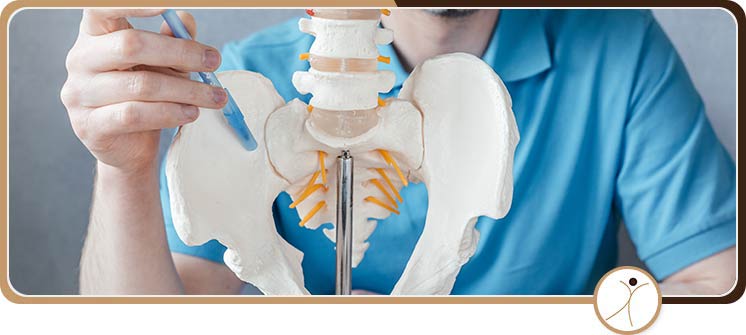Is Sacroiliitis Permanent?
Sacroiliitis isn’t always permanent, as its duration often depends on the cause. Acute cases, like those from injury or pregnancy, often resolve with rest and therapy. However, if linked to inflammatory arthritis, it can be chronic, requiring ongoing management. With proper diagnosis and tailored treatment, pain can be significantly reduced, improving daily life. Visit Dr. George Atallah, D.O. at Modern Pain Management. For more information, contact us or book an appointment online. We have convenient locations to serve you in Houston TX and Sugar Land TX.


Table of Contents:
When should I see my healthcare provider for sacroiliitis?
Is sacroiliitis the same as sacroiliac joint pain?
Is sacroiliitis a long-term condition?
If you are experiencing persistent pain in your lower back, buttocks, or hips that does not improve with rest or over-the-counter pain medications, it may be time to consult a specialist at Modern Pain Management to evaluate for sacroiliitis. You should also seek care if your pain is severe, disrupts your sleep, or limits your daily activities. Additional symptoms such as unexplained fever, redness, swelling, or warmth in the affected area, or new numbness, tingling, or weakness in your legs, warrant prompt evaluation.
Individuals with a history of autoimmune diseases, recent infections, or pelvic injuries should be especially vigilant about any new or worsening symptoms. Our team is dedicated to providing early diagnosis and personalized treatment options to help relieve your discomfort and prevent potential complications. If you are concerned about sacroiliitis or persistent pain, don’t hesitate to contact us for an expert evaluation and a customized care plan.
At Modern Pain Management, we understand that lower back pain can significantly impact your quality of life. Two common sources of this discomfort are sacroiliitis and sacroiliac (SI) joint pain. While these terms are related, they describe different conditions, each requiring a personalized approach to diagnosis and treatment.
Sacroiliitis refers specifically to inflammation of one or both of the sacroiliac joints, which connect the lower spine to the pelvis. This inflammation can be triggered by conditions such as ankylosing spondylitis, other forms of inflammatory arthritis, infection, injury, or even pregnancy. Patients typically experience pain in the lower back, buttocks, or thighs, which may worsen with activities like standing for long periods or climbing stairs.
In contrast, sacroiliac joint pain is a broader term that encompasses any pain originating from the SI joint area. While inflammation (sacroiliitis) is one possible cause, SI joint pain can also result from mechanical issues such as joint dysfunction, ligament injury, degeneration, or instability. As a result, not all sacroiliac joint pain is caused by inflammation; it can also be due to wear and tear or biomechanical problems.
At Modern Pain Management, our experienced team specializes in accurately diagnosing the source of your pain. We use the latest diagnostic tools and a comprehensive evaluation process to distinguish between sacroiliitis and other causes of SI joint pain. This precision allows us to develop a personalized treatment plan—whether that involves medication management, targeted injections, physical therapy, or advanced interventional procedures.
While all cases of sacroiliitis can lead to sacroiliac joint pain, not all SI joint pain is due to sacroiliitis. Accurate diagnosis is essential to ensure you receive the most effective treatment for your unique condition.
Sacroiliitis refers to inflammation of one or both of the sacroiliac joints the critical connection points between your lower spine and pelvis. At Modern Pain Management, we frequently see patients struggling with the discomfort and mobility issues that sacroiliitis can cause. The long-term outlook for this condition varies, depending on the underlying cause, the severity of inflammation, and how soon effective treatment is started.
Some cases of sacroiliitis are triggered by temporary factors such as injuries, infections, or pregnancy-related changes. With prompt and targeted care—like the personalized treatment plans—these temporary cases often resolve without lasting effects. However, sacroiliitis is commonly associated with chronic conditions, such as ankylosing spondylitis and other inflammatory arthritic diseases. In these instances, patients may experience persistent or recurring pain and stiffness in the lower back and buttocks, which can interfere with daily activities and overall quality of life.
At Modern Pain Management, our approach to long-term sacroiliitis relief includes a combination of evidence-based therapies:
• Medications to reduce inflammation and relieve pain
• Physical therapy to improve mobility and strengthen supporting muscles
• Lifestyle modifications to minimize triggers and protect joint health
• Interventional procedures such as steroid injections or radiofrequency ablation when appropriate, to provide targeted pain relief
Our comprehensive care is tailored to each patient’s unique needs, with the goal of controlling inflammation, alleviating pain, and maintaining joint function. Regular follow-up visits allow us to monitor your progress and adjust your treatment plan as needed, ensuring the most effective and up-to-date care.
In summary, sacroiliitis can be either a short-term or long-term condition. Early diagnosis and expert management—like that provided at Modern Pain Management—are key to improving outcomes and helping you return to the activities you enjoy. If you’re experiencing persistent lower back or buttock pain, our team is here to help you find relief and regain your quality of life. For more information, please contact us or book an appointment online. We have convenient locations to serve you in Houston TX and Sugar Land TX. We serve patients from Houston TX, Sugar Land TX, Pearland TX, Jersey Village TX, Missouri City TX, Stafford TX, and Richmond TX.
Check Out Our 5 Star Reviews

ADDITIONAL SERVICES YOU MAY NEED




